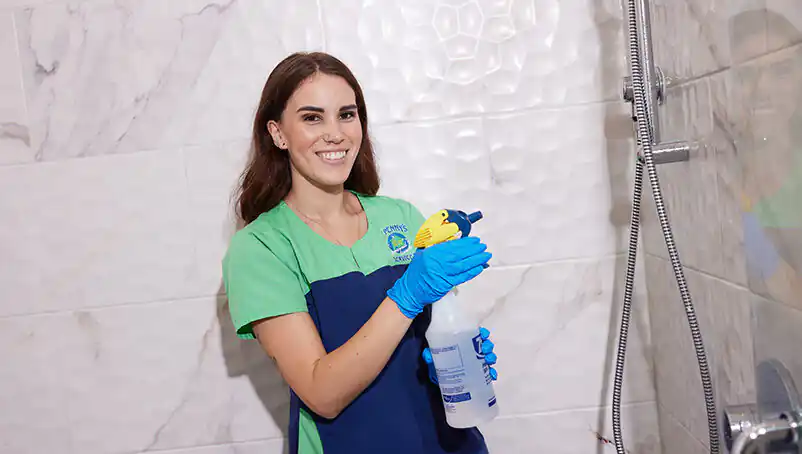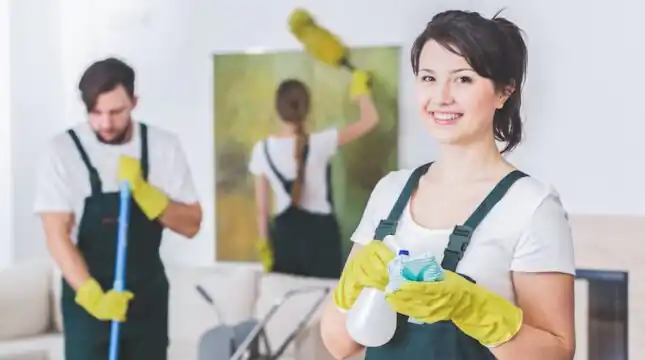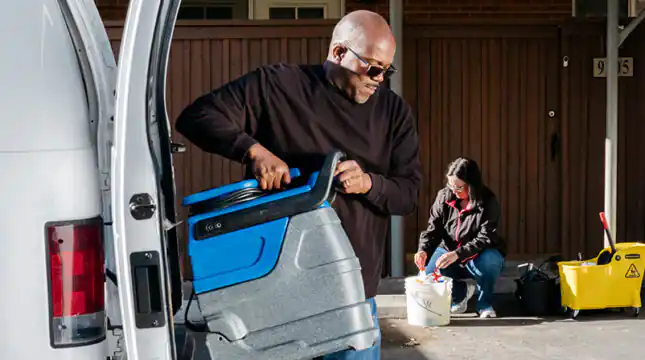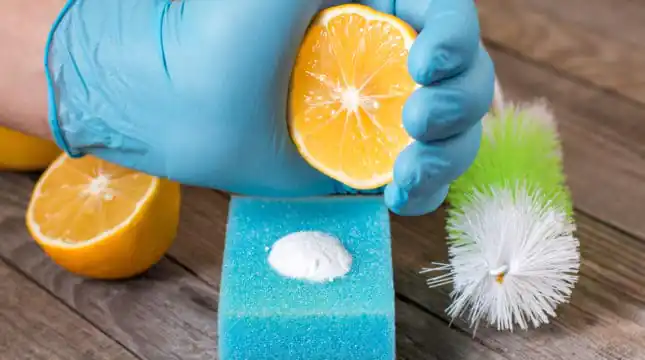What is cleaning business insurance?
Cleaning insurance is a policy or a group of policies that can help protect housekeepers and maids from common risks like client property damage, work injuries or stolen equipment. Even if you’re careful, accidents can happen — and insurance can help you cover the cost when they do.
For example, if you accidentally damage a client’s countertop or a customer slips on a freshly mopped floor, the right coverage can help pay for repairs, medical costs or legal fees.** House cleaning insurance can also help protect your cleaning supplies, business gear and your vehicle if you use it for work.
Here are a few common situations where cleaning insurance for self-employed workers can help:
- A client trips over your vacuum cord and gets injured.
- You spill a cleaning solution that stains a customer’s carpet and it needs replacing.
- Your work van is in an accident while driving to a job.
- Someone steals your equipment from your vehicle or job site.
Whether you work solo or hire a team, insurance for cleaning services can help safeguard your business and reputation.
Is insurance required for house cleaners or maids?
Do housekeepers need insurance? It depends on where you live and how you set up your business. Most states don’t require general liability insurance to operate a cleaning business, but they may require other types of coverage in some situations.
For example:
- Workers’ compensation insurance is often required if you have employees — even just one. Some states, like California, mandate it for all employers.
- You may need commercial auto insurance if you drive your vehicle for work. While personal auto insurance is required in every state, it often won’t cover accidents while driving to or from a cleaning job.
- You might also need to show proof of insurance to get a cleaning business license or land contracts with landlords, realtors or property managers.
Even when it’s not legally required, insurance for your cleaning business is smart. It protects you financially, helps you look more professional and it can help give clients peace of mind.
What types of insurance do self-employed cleaners need?
Whether you clean homes independently or manage a small team, the right business insurance policies help protect your cleaning business from everyday risks.
These are the most important types of coverage for small business owners in your industry:
General Liability insurance
Many clients may ask for proof of general liability coverage before they hire you. Sometimes called slip-and-fall insurance, this is the foundation of most residential cleaning insurance policies.
General liability coverage can help cover costs if you:
- Accidentally damage a client’s property
- Cause someone to get hurt during a job (sometimes called bodily injury)
- Face legal costs over a covered incident
Learn more about general liability insurance for cleaners.
Tools and Equipment insurance
Cleaning tools aren’t cheap to replace. Also called inland marine coverage, tools and equipment insurance can help protect your cleaning supplies and gear from damage or theft — whether at a job site, in your car or in storage.
NEXT offers this coverage as an add-on to general liability policies for cleaning professionals.
Workers’ Compensation insurance
Most states require workers’ comp insurance coverage if you hire part-time or full-time staff. It can help cover medical expenses, lost wages and recovery costs if an employee gets injured or falls ill while working.
Unlike general liability, which covers injuries to other people (like clients), workers’ comp only covers injuries to your employees. (Learn more about the difference between general liability and workers’ comp.)
Learn more about workers’ comp insurance for cleaners.
Commercial Property insurance
If you run your business out of an office or store supplies in a rented or owned space, commercial property insurance can help protect your building, cleaning equipment and inventory from things like fire, theft or water damage.
Commercial Auto Insurance
If you drive to and from job sites, your personal car insurance may not be enough. Commercial auto insurance can help cover some incidents that happen while driving for work, such as accidents, damage to work vehicles, medical bills, towing and legal fees.
Errors and Omissions insurance (E&O)
Sometimes called professional liability insurance, E&O insurance can help cover claims related to your work quality, such as professional mistakes, negligence or dissatisfaction with service that cost people money.
Do independent contractors or freelance house cleaners need insurance?
Yes, if you work independently, you’re responsible for your own protection. Whether you call yourself a freelancer, independent contractor or a self-employed house cleaner, you’re probably not covered by the insurance policies of the company or client you work for.
That means if you damage property, someone gets hurt or your equipment is stolen, the financial risk falls on you — unless you have your own coverage.
Say you’re hired as a subcontractor for a cleaning job by a larger cleaning company (domestic cleaning or commercial cleaning). Even though they carry general liability insurance, their policy may not cover you because you’re not an employee.






